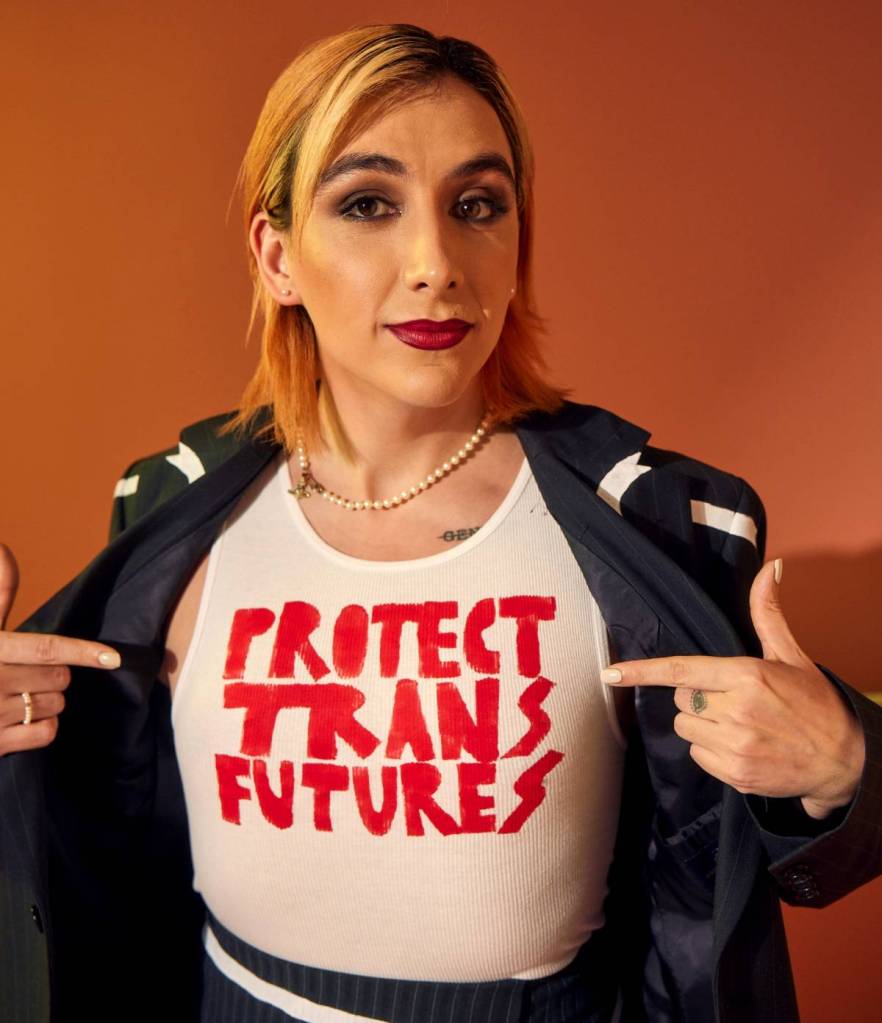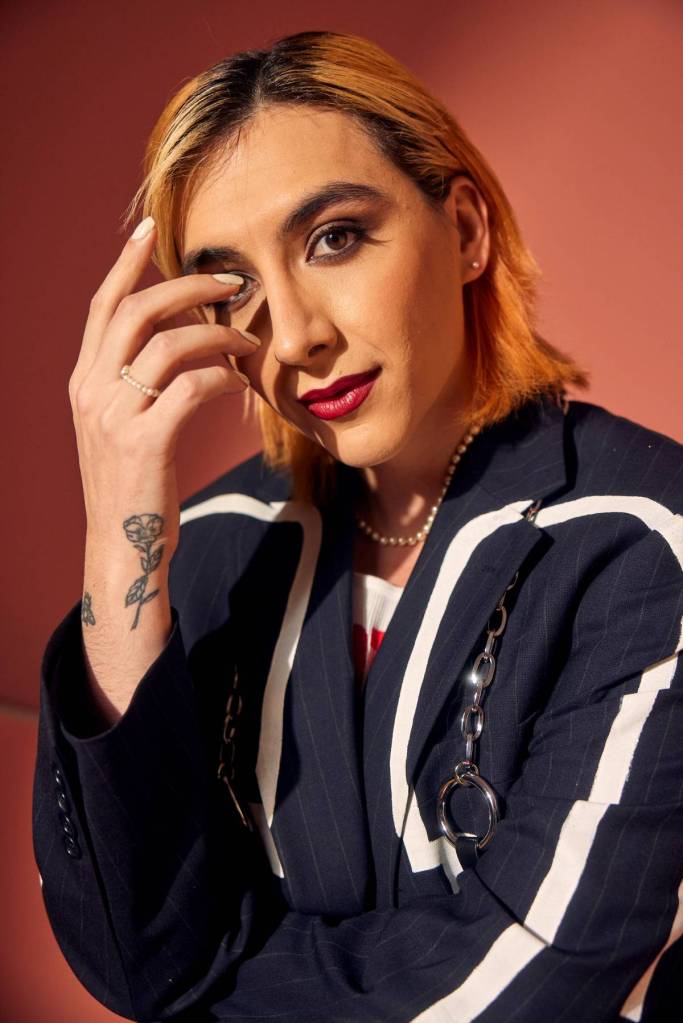Quantum Leap and Sandman star Mason Alexander Park on ‘radical’ trans joy and representation

Non-binary actor Mason Alexander Park talks about the power of ‘radical’ trans joy and celebrating the beauty of the community. (Getty)
Mason Alexander Park is having a moment in Hollywood, jumping from project to project, and they’re interested in making sure trans people get their time in the spotlight too.
Park gained prominence for their command of the stage on the Broadway National Tour of Hedwig and the Angry Inch. They pivoted to playing their own spin on fan-favourite anime character Gren in the live-action Netflix adaptation of Cowboy Bebop.
Then, Park set the internet on fire with thirst as the sultry, beautiful and cruel Desire in Netflix’s The Sandman. They shifted flawlessly from the major streamer to TV screens when they took a leading role as non-binary character Ian Wright in NBC’s Quantum Leap reboot.
Even with all that time on screen, Mason Alexander Park tells PinkNews that it’s important for them to represent the resplendent joy they feel as a trans person.
Trans joy can be life-altering when all you see in the world are trans people facing countless horrors from people in direct opposition to the trans community, they explain.
“It’s similar to what we’ve seen with probably every other marginalised group throughout history,” they say.
They continue: “If you look at the gay movement, it was a tactic to stigmatise that as a mental illness – in the same way that people are trying to with transness that makes it a thing people don’t want to be.
“I think trans joy is in direct opposition to conversion therapy in the most dramatic sense of the world.
“When I see people that are just living as happily and as fully as I know all of the trans people in my life do, it sends a very specific message that’s like adopting a kind of radical positivity, that doesn’t give fodder to people that are looking for your misfortune to be able to say ‘Look, they transitioned because they’re a miserable sinner or because they’re X, Y and Z’.”

The world is very scary for trans people right now. The Human Rights Campaign is tracking a whopping 520 anti-LGBTQ+ bills at the state level across the US, books about queer identities are being banned from countless schools and life-saving gender-affirming healthcare is being banned in states across the US.
It’s why trans representation in media – like the popular TV show Quantum Leap – can be a powerful lens through which people can learn “basic morality”, Mason Alexander Park says.
“It’s a weird, wonderful empathy possibility machine that often isn’t used for the full effect that it can be used for,” they continue.
“Often it is when it becomes more than just entertainment, and it becomes an opportunity to experience stories and people that you may or may not have run into at some point in your life.
“That’s where I feel like art, history, activism and all these kinds of things converse in one place.
“I’m very grateful that I’ve been able to be so visible because I remember growing up and not necessarily having anyone to look up to that was explicitly a non-binary or trans individual in the media.”
Instead of telling stories about transitioning or dealing with transphobia, Quantum Leap puts its trans leads into the same variety of stories that every other character gets to have – which Park says is “more powerful and more radical”.
“We get that stuff a little more frequently than we get the kind of unbridled trans joy, chaos and being able to tell stories that are more than just our own in terms of coming out, transitioning, dealing with parents,” Park says.
Mason Alexander Park is among the most high-profile non-binary celebrities in a line-up that includes Emma Corrin, Sam Smith, Janelle Monáe and The Last of Us star Bella Ramsey.
Still, Park is conscious that full representation of the community will take a while. They’re among a host of voices who are calling out the media for highlighting only a “small demographic of trans people” who happen to “be white, blonde, hot as hell and super thin”.
“I’m waiting to see more people that are the next step,” they say.
“I want to see fuller figured non-binary people on TV. I want to see more people of colour on TV.
“The beauty of the queer community and the human experience is that we are all so different.”

Mason Alexander Park says the media has a “responsibility” to represent the full human experience instead of an “idealised, curated” brand that makes “kids hate themselves” and people “want to achieve unnecessary things”.
“That’s silly to me. I want to see real people on TV,” they say.
“I want to see the the fullness of expression and diversity that I know is out there because half of the trans people I know are people of colour; half of the trans people I know are not necessarily rail thin and stark, blonde.”
They add: “And so I think it’s important for them to be able to see themselves on screen, especially in roles that are like explicitly trans or non-binary.”

